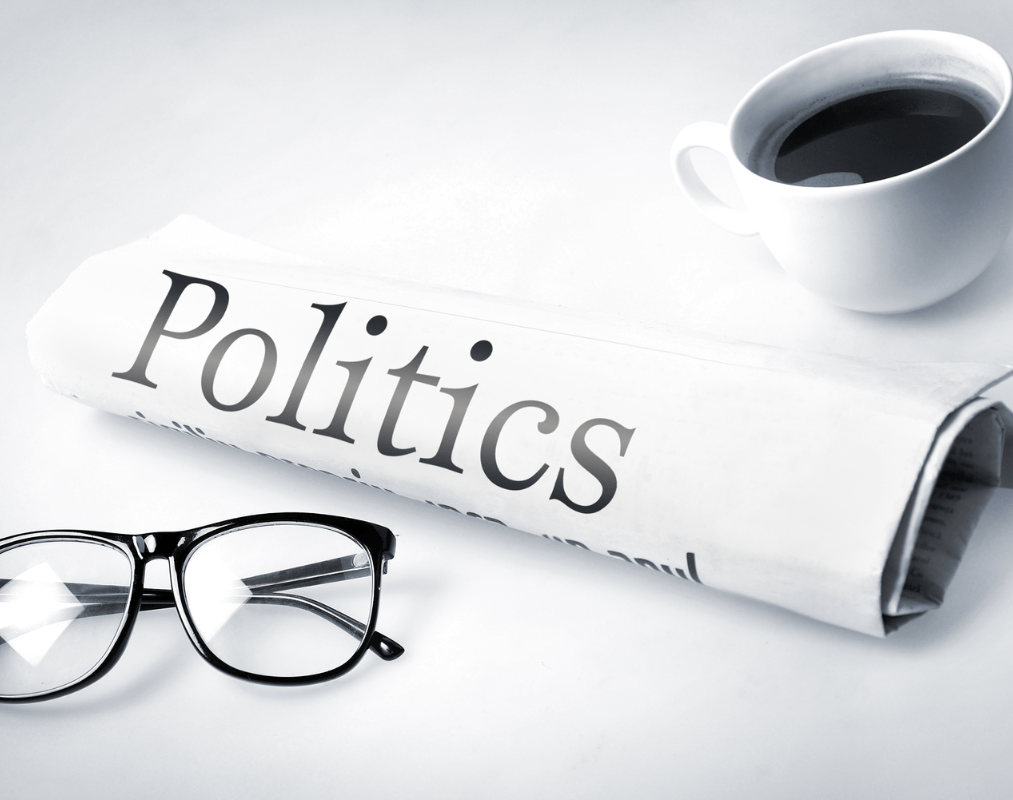Why Politically Driven CEOs Are Prone to Breaking the Rules

Getting close to election time! The ‘funnest’ part of living in a democracy… has got to be the run-up to participating in democracy.
I joke.
I rarely venture into political commentary, but during my morning perusal of the Wall Street Journal, I recently came across a poetically titled article: Having a Politically Partisan CEO Can Lead to More Company Misconduct, Study Finds.
My attention was caught.
Published in the Academy of Management Journal, the Georgetown researchers pose a provocative question: Are liberal or conservative CEOs more likely to engage in misconduct? The answer is perhaps surprising:
The most significant indicator of misconduct wasn’t the political leanings of the CEO. Instead, it was whether or not their political ideology shaped their identity. Simply put, the more a CEO’s identity was built around a political ideology (left or right), the more likely they and their companies were to engage in misconduct.
How much more likely, you might ask?
47% more likely.
That ain’t nothing.
What Kind of Misconduct Are Politically Driven CEOs Prone To?
The study specifically looked at the number of companies that were fined at least $5,000 for violations of federal, state, or local regulations, and how often enforcement actions were taken against them. These violations include:
- Competition violations
- Consumer protection issues
- Employment-related violations
- Environmental infractions
- Financial reporting problems
- Government contracting issues
- Workplace health and safety violations
Which, if you think about it, covers most of the activities that happen in a business. Politically driven CEOs were more likely to be found guilty of these infractions, showing how leadership behavior and identity can significantly influence a company’s conduct.
Why Are These Leaders More Prone to Misconduct?
Here is where the study becomes interesting to me. Leaders who are more ideologically driven tend to hold themselves to a higher moral standard.
But when ideology shapes identity, those moral standards appear to distort. There is an easily missed nuance here: there is a difference between:
- Leaders who hold themselves to high standards, and
- Leaders who build an identity out of their standards.
The researchers found that leaders whose political standards become part of their identity are more likely to have:
- An elevated sense of self-worth and a degree of entitlement.
- An “us versus them” mentality that doesn’t value the opinions of others.
- An unwarranted feeling of moral superiority.
What Happens When CEOs Avoid Accountability?
These kinds of leaders are more likely to:
- Build echo chambers: Surround themselves with people who think similarly and are unlikely to challenge them.
- Avoid accountability: While the rhetoric is about standards, the culture avoids being held to those standards (or at least standards they haven’t accepted).
- Rationalize: Much of the lack of accountability is excused on moralistic terms.
The result, whether intentional or consequential, is that politically driven CEOs demonstrate a dramatically higher likelihood of misconduct.
There is an old-school term for this: it’s called being “self-righteous.” Self-righteousness doesn’t bring out the best in people.
Why Am I Bringing This Up?
In these politically charged and divided times, it can be easy to believe you have to choose a side—that you need to fly the flag of one team or another.
But you don’t.
However, even if you do fly a flag, be sure to ask yourself:
- Is it possible that I think I’m better than people who don’t agree with me?
- How open am I to really listening to the perspectives of others, especially those I disagree with?
- To what degree do I intentionally seek out or expose myself to differing perspectives?
- Do I tend to make exceptions for or justify my decisions or behaviors?
Of course, these are very difficult questions to ask and answer honestly. Because, as a rule, people like to think of themselves as “good people.” Our ability to justify ourselves is usually a better-exercised muscle than our ability to honestly self-reflect. Politically driven CEOs are particularly susceptible to this pitfall.
Across society—politics, media, academia, business, etc.—it is common to argue “The ends justify the means.” All that ever means is: Do what you want as long as you can justify it in your mind.
The Danger
I’m a values-driven person. I prefer to work with clients who are as well. I think it is important to have a well-calibrated moral compass and to be ethical in practice. Politics and policy touch all of this.
But at least according to the research, be careful. Ensure that your ‘rightness’ doesn’t begin to justify ‘wrongness’ as long as you can explain it well enough.
“The self-righteous rule out the possibility that they are what has gone wrong.” — Mason Cooley
“Beware of your own righteousness, especially when you feel you are being wronged.” — John Piper
“The self-righteous scream judgments against others to hide the noise of skeletons dancing in their own closets.” — John Mark Green
Take good care,
Christian
Categories
Get Christian’s Newest Book: Train to Lead

Download my free 10-page eBook:
How To Accomplish More Without Doing More:
Eight Proven Strategies To Change Your Life
Discover how to save eight hours during your workweek-even if you're too busy to even think about it. The resource every maxed out executive needs.